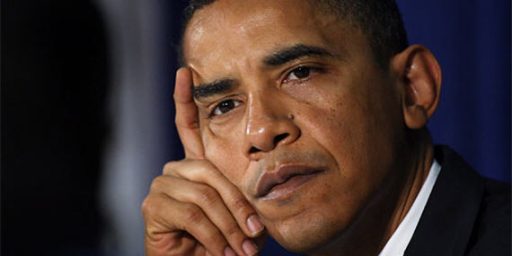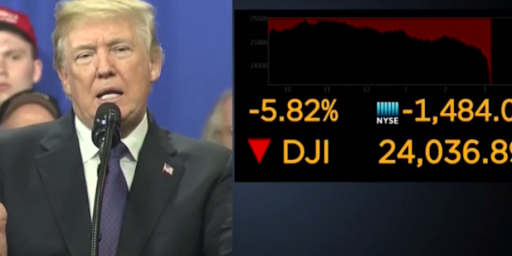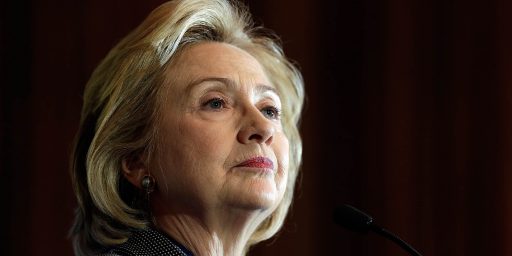Insurgency as Business
Steven Metz has a useful primer on “21st Century Insurgency” in the new issue of Parameters, the professional journal of the Army War College. Particularly interesting is his analysis of the similarities between insurgencies and businesses:
As in commercial markets, participants in a complex conflict may enter as small, personalistic companies. Some may resemble family businesses built on kinship or ethnicity. As in a commercial market, the more successful participants evolve into more complex, variegated corporate structures. Insurgencies then undertake a number of the same practices as corporations:
• Acquisitions and mergers (insurgent factions may join in partnerships, or a powerful one may integrate a less powerful one).
24/25
• Shedding or closing unproductive divisions (insurgencies may pull out of geographic regions or jettison a faction of the movement).
• Forming strategic partnerships (insurgencies may arrange relationships with internal or external groups—political, criminal, etc.—which share their objectives).
• Reorganizing for greater effectiveness and efficiency.
• Developing, refining, and at times abandoning products or product lines (insurgencies develop political, psychological, economic, and military techniques, operational methods, or themes. They refine these over time, sometimes dropping those which prove ineffective or too costly).
• Advertising and creating brand identity (insurgent psychological activities are akin to advertising. Their “brands” include political and psychological themes, and particular methods and techniques).
• Accumulating and expending capital (insurgents accumulate both financial and political capital, using it as required).
• Subcontracting or contracting out functions (contemporary insurgents may contract out tasks they are ineffective at or which they wish to disassociate themselves from).
• Bringing in outside consultants (this can be done by physical presence of outside advisers or, in the contemporary environment, by “virtual” consultation).
• Entering and leaving market niches.
• Creating new markets and market niches.
• Creating and altering organizational culture.
• Professional development and establishing patterns of career progression.As in commercial markets, a conflict market is affected by what happens in other markets. Just as the automobile market is affected by the petroleum market, or the American national market by the European market, the Iraq conflict market is affected by the Afghan conflict market or by the market of political ideas in the United States and other parts of the Arab world.
That contemporary insurgents emulate corporations in a hyper, competitive (violent) market shapes their operational methods. Specifically, insurgents gravitate toward operational methods which maximize desired effects while minimizing cost and risk. This, in conjunction with a profusion of information, the absence of state sponsors providing conventional military materiel, and the transparency of the operating environment, increases the value that terrorism provides the insurgent. Insurgents have always used terrorism. But one of the characteristics of this quintessentially psychological method of violence is that its effect is limited to those who know of or are impacted by the act. When, for instance, the Viet Cong killed a local political leader, it may have had the desired psychological effect on people in the region, but the act itself did little to shape the beliefs, perceptions, or morale of those living far away. Today, information technology amplifies the psychological effects of a terrorist incident by publicizing it to a much wider audience. This technology includes satellite, 24-hour media coverage, and, more importantly, the Internet which, Gordon McCormick and Frank Giordano believe, “has made symbolic violence a more powerful instrument of insurgent mobilization than at any time in the past.”
For years, business leaders have studied the lessons of the great strategists such as Mao and Sun Tzu. It may be that the guerrillas are now learning from the Donald Trumps of the world.






You mean that when your dad is a multimillionaire (his father’s fortune was estimated at $400 million) it’s a little easier to get on in the world? Doesn’t seem applicable some how.
Insurgents as businessmen? I am not surprised.
I always remember Michael Corelone saying those in his family were businessmen and their loyalty was based on that.
Or Hyman Roth saying “We’re bigger than US Steel.”
How about Ferengi Rules of Acquisition 34 and 35
Peace is good for business.
War is good for business.
Bill
Didn’t Osama inherit his family fortune? Isn’t all of Sadr’s power derived from what his father did? It seems strangely accurate to me.